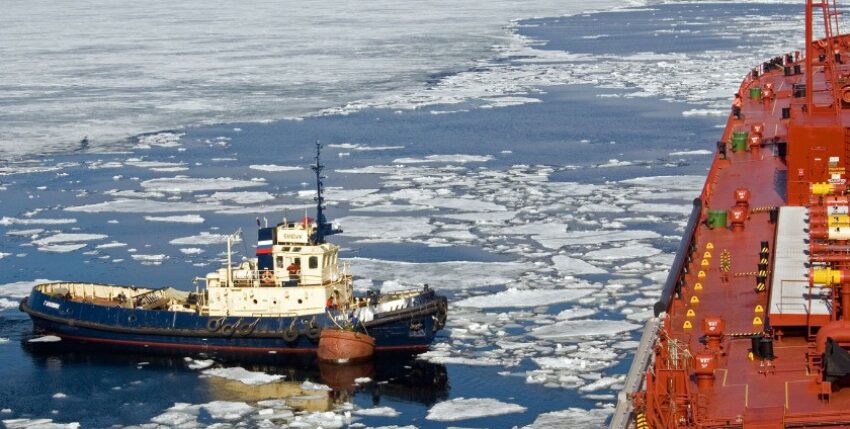Impacts on shipping and trade - impacts on global shipping markets - By Prof Dr Uwe K. Jenisch
Maritime trade with Russia
Deliveries of oil, gas, coal, grain and raw materials from Russia by ship are largely cancelled. gas, coal, grain and raw materials from Russia by ship have largely been cancelled, as has container, ferry and feeder traffic with Russian ports. ports. New cargoes to and from Russia are rejected. Russian ships are being turned away in many ports around the world. Pipelines remain open for the time being. The northern Black Sea, including the Azov Sea, is a "war zone" under insurance law, which means that all traffic there has come to a standstill. At least 4 ships have been shot at. No go area with AIS spoofing.
Importance of the Russ. Merchant fleet incl. seafarers, share of trade
- cargo shares on the world market: Tanker 5.2%, LNG 6%, Bulker 3.7%, Container 3%
- Ownership sharesTanker 7.4%, LNG 3.5%, Bulker 0.8%
- Share of superyachts: 7-10%, currently on the run.
- Russ. Seamen: 10.5% of 1.9 million seafarers work on 74,000 seagoing vessels worldwide (Ukraine 4% seafarers). These seafarers are particularly affected as their pay, flights home and crew changes become non-performing.
- Straits: Turkish straits are closed to Russ. Turkish straits are closed to Russian warships (with exceptions). Kerch Strait closed. Kiel Canal could be closed if necessary, as it is not an international waterway. Danish straits cannot be closed at present.
Shipbuilding and shipyards
Shipbuilding orders from Russian owners, e.g. at shipyards in Asia, may become non-performing, as may current and future newbuilding orders for warships and merchant ships at Russian shipyards. In addition, there is general uncertainty about the further development of maritime trade and the need for transport space. Acceleration of the maritime arms race.
Maritime transport/world trade in general
The enormous rise in freight rates and fuel prices (heavy fuel oil and diesel) makes all goods more expensive with immediate effect. Slump in the cruise industry. Flight of capital and companies from Russia. No new business with Russia. Reconsideration of trade with China, disruption of the Silk Road(s). Ukraine loses its harbours. Many supply chains are interrupted and require reorientation.
The consequences are a sharp rise in the cost of international maritime transport and generalised attentism. The reorientation of energy supply and raw material security is becoming urgent (new supply options?) The switch to "green economy" and the fight against climate change are being set back. All states are affected, especially sea-dependent states such as China and Germany/EU. China's stance remains diffuse, although the state (actually) has an interest in secure and undisturbed trade routes. The impact on the Third World is likely to be catastrophic if food and energy become significantly more expensive. All the effects will be felt for a long time.







